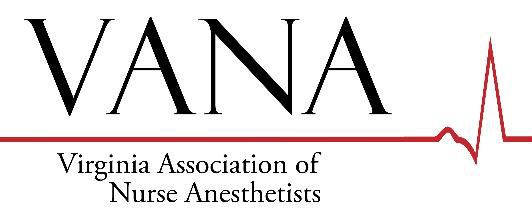VANA Supports HB 2391: Removal of Supervision for Certified Registered Nurse Anesthetists
Note: HB 2391 is expected to come before the House Health and Human Services Committee on Thursday, Jan. 30. Be sure to contact your lawmakers to support this legislation by clicking here.
Del. Mark Sickles has introduced legislation, House Bill 2391, that maintains the CRNA and physician relationship in Virginia’s Code but replaces “supervision” with “consultation” to reflect what’s happening in Virginia’s surgical facilities today.
In late 2024, the Joint Commission on Health Care found that both anesthesiologists and CRNAs provide safe, effective, and high-quality anesthesia services to patients after completing thousands of hours of education and training. The report further offered several policy options for consideration, including a recommendation against implementing further supervision restrictions on CRNAs and a recommendation directing the Department of Health Professions to develop a plan to transition CRNAs to independent practice.
The Virginia Department of Health Professions found in December 2023 that Virginia is an anomaly when compared to other state rules regarding the practice requirements for nurse anesthetists. Passing HB 2391 would align Virginia with most of the U.S. and modernize Virginia’s regulatory framework for CRNA practice.
It’s time to remove barriers for Virginia nurse anesthetists like the majority of states across the country.
Most states are reducing barriers for nurse anesthetists. According to the American Association of Nurse Anesthesiology, 43 states do not use the word supervision in state law. Further, the December 2023 report from the Virginia Department of Health Professions noted that Virginia rules are an anomaly when compared to other state rules regarding the practice requirements for nurse anesthetists. Removing supervision will improve access to safe, high-quality anesthesia care, and have a significant positive impact on healthcare facilities across the Commonwealth. No patient should ever face a delay in care due to burdensome supervision requirements in state law.
Removing burdensome supervision regulations addresses the workforce shortage for anesthesia services in Virginia.
The existing supervision requirement leads to inconsistencies in the interpretation and application of the law, resulting in a wide variance in patient care and access experiences. Supervision creates hurdles for CRNAs and exacerbates the healthcare workforce shortage, particularly in rural areas where access to quality care is already a challenge. A 2024 JCHC Report found that more restrictive supervision requirements for CRNAs would be detrimental to efforts to address anesthesia workforce shortages, particularly for remote or rural facilities in Virginia that use proceduralists as CRNA supervisors and may not have physician anesthesiologists on staff. Evidence indicates that less restrictive CRNA supervision requirements present a low risk of harm to patients and a possible benefit to the anesthesia workforce.
Removing supervision aligns the law with daily best practices currently used across Virginia, resulting in cost savings and better patient care and access experiences.
Virginia uniquely subjects CRNAs, unlike every other category of Advanced Practice Registered Nurse (APRN), to supervision by a physician, dentist, or podiatrist. This discrepancy is puzzling and compromises the high standard of care that CRNAs are trained to deliver. By passing HB 2391 and removing this barrier to practice, Virginia would allow CRNAs to practice to the full extent of their education, licensure and training.
Stand with CRNAs and support HB 2391. Learn more about Virginia’s 2,300 CRNAs at VirginiaCRNA.org.

